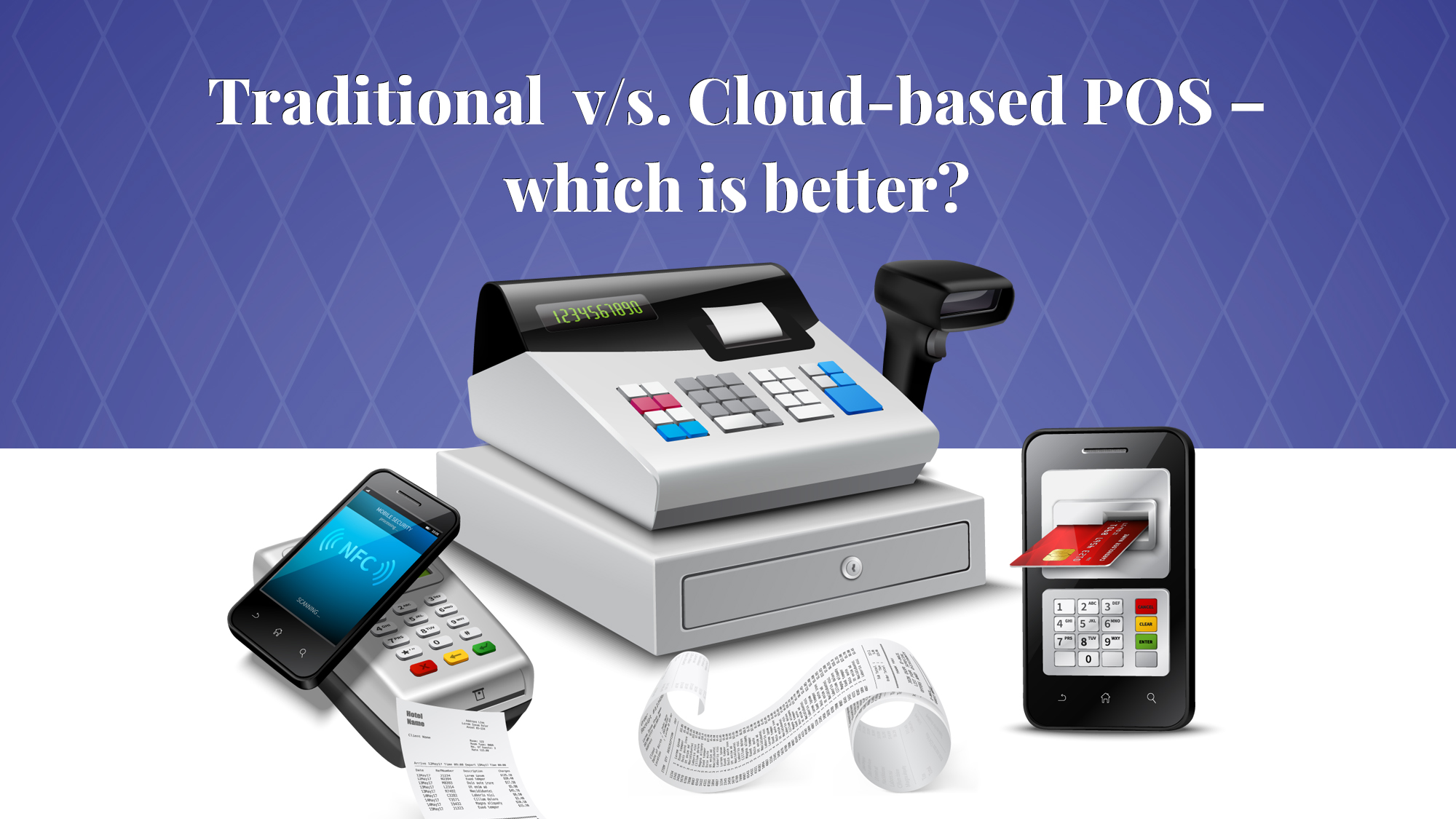
If you are a retail business owner, an important tool for you is a point-of-sale system that can help you to manage and grow your sales. This system monitors your inventory count, sales, individual performances of products, sales made by each employee, etc. You can use this information to predict your future sales, design or modify your products and marketing strategy, monitor employee performance, etc.
A crucial consideration in selecting a POS system is whether to purchase a traditional POS or a Cloud-based POS. If you are considering buying this system, here we have listed the advantages and disadvantages of both types to help you make the right decision:
Traditional POS
A traditional/on-premise/legacy POS is one where data is stored on a local database such as a hard drive. The data can be accessed by connecting the hard drive to a computer.
Advantages Of Traditional POS
Not Dependent On The Internet
A traditional POS is not web-based. It will continue to work even when the internet doesn’t. This system runs on a closed network that stores data on local servers which can be accessed offline in cache mode.
Difficult To Steal The Hardware
A traditional POS comes with bulky hardware which is difficult to steal. The screen size of most traditional POS systems is 15 inches and they also come with additional hardware like cash drawers, cash registers, receipt printers, a data server, backup servers, and backup drives.
Disadvantages Of Traditional POS
Heavy And Expensive Hardware
As mentioned before, a traditional POS comes with bulky hardware. This is because the system itself acts as the server to store data. The hardware of this system also makes it expensive.
Frequent And Costly Updation
Updating a traditional POS is a frequent, manual process that involves changing its hardware. The upgraded hardware is expensive to purchase and install, and the process requires businesses using this system to be shut down for a few days which results in losses for them.
Cannot Be Accessed Remotely
As a traditional POS’s hardware is heavy, does not use the internet to work, and has servers located onsite, it cannot be used on the go. It requires you to be present at your store to access data or close sales.
Cloud-Based POS
A cloud-based POS is a system that is hosted on the Cloud. Data is stored on a Cloud-based server and can be accessed in real time with an internet connection using mobile devices.
Advantages Of A Cloud-Based POS
Easy And Accurate Inventory Tracking
Physical inventory counting requires closing down of work which results in losses for businesses. A Cloud-based POS automates this task, thereby preventing errors in the process, allowing sales staff to interact with more customers and close more sales, and allowing you to plan your inventory.
Remote Access
The biggest advantage of a Cloud-based POS is that it can be accessed remotely, allowing you to focus on the more important business matters on hand. This system can provide you with real-time updates on the activity at the physical location of your store, like new orders and inventory movement updates, when you are away.
Data Security
When you use a cloud-based POS, you won’t have to worry about your data getting stolen or deleted permanently. The system automatically backs up your data and allows you a few days to retrieve it before deleting it permanently.
Cost-Efficient
By choosing a cloud-based POS, you save money on bulky hardware and its installation and updation. This POS is an application that can be installed on devices using an internet connection and costs a small subscription fee.
Disadvantages Of A Cloud-Based POS
Needs Continuous Internet Connectivity To Work
A Cloud-based POS offers you mobility, but it also means that you will need a strong internet connection to access it from outside your store. In case of an internet outage at your store, you have to be prepared with a backup internet connection to ensure business continuity. Internet outages can result in missed sales opportunities and financial losses when you use a Cloud-based POS.
Delicate Hardware
Contrary to a traditional POS, the hardware of a Cloud-based POS consists of mobile devices which are small and delicate. These devices are susceptible to damage, theft, and breakage.
